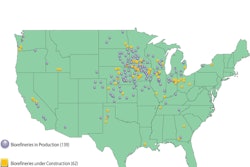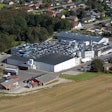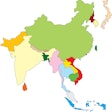This action follows a complaint from a consumer who reported a high number of eggs with “black mold” among two fiber packs of one-dozen eggs purchased in Rockwall, a dormitory community East of Dallas, TX. In a video posted on the internet NBC TV Channel 5 Dallas/Ft. Worth depicted eggs with mold proliferation under the shell membrane. The packs showed an expiry date of July 23rd but did not carry either a legible date of pack or a USDA Plant ID.
Mold proliferation occurs following penetration by spores through the pores of the shell and the outer shell membrane. Factors which contribute to the problem include harvesting floor eggs or contaminated nest litter, pads or belts. Allowing condensation to form on the surface of shells when eggs are transferred from a cold room to a transport vehicle or during equilibration at ambient temperature before off-line processing will facilitate passage of spores into the air cell and between the shell membranes.
Black mold is not a danger to consumers but is strikingly unaesthetic and upsetting to observe. Detection in the plant is not possible as the pigment responsible for the discoloration has not generally been elaborated at the time of candling unless eggs were stored for an extended period prior to processing. A psychrophyllic mold might develop at refrigeration temperatures but it is more likely that thermal abuse occurred during storage in a farm cooler during the recent triple digit temperatures in the region.




.jpg?auto=format%2Ccompress&fit=crop&h=167&q=70&w=250)













